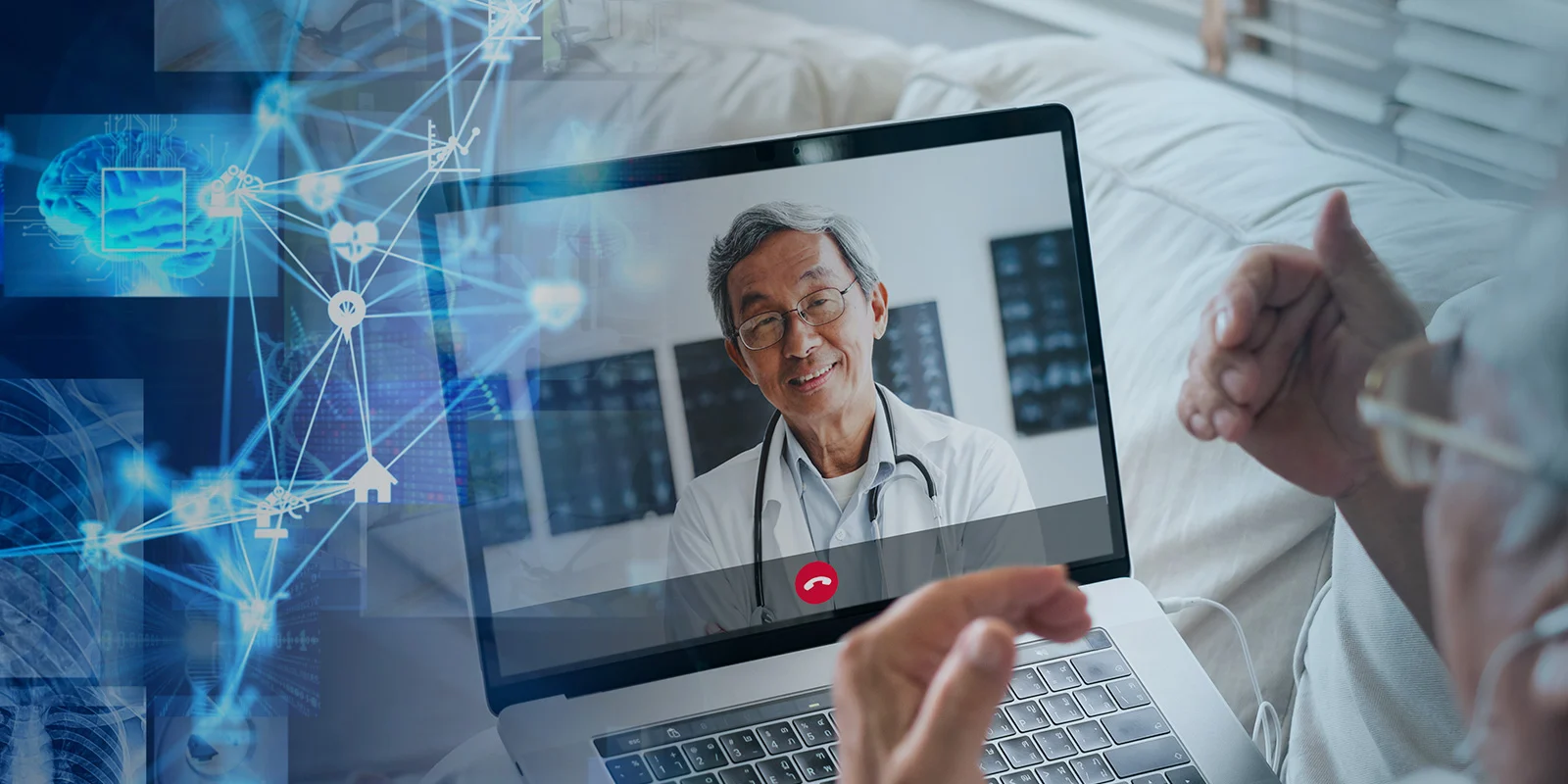Digital Therapeutics, commonly referred to as DTx, represents a revolutionary shift in the healthcare landscape. As technology continues to intertwine with our daily lives, its application in healthcare has brought about innovative solutions for managing and treating various medical conditions.
This blog post explores the world of DTx, providing a comprehensive overview of its concept, benefits, and impact.
The Concept and Evolution of DTx

The origins of Digital Therapeutics can be traced back to the broader digital health movement. This technology involves the use of digital platforms – such as mobile apps and online programs – to deliver medical interventions directly to patients.
These interventions are designed to prevent, manage, or treat a medical disorder or disease. A distinguishing feature of DTx solutions is their basis in clinical evidence; they undergo rigorous testing and validation, similar to traditional medical treatments.
Over the years, Digital Therapeutics has evolved from simple wellness apps to more sophisticated platforms capable of managing chronic diseases, mental health issues, and other complex medical conditions.
This evolution has been fueled by advances in technologies like artificial intelligence, big data analytics, and machine learning. These tools have enabled DTx solutions to not only deliver therapeutic interventions but also offer personalized and adaptive treatment plans.
Key Components

A fundamental aspect of Digital Therapeutics is its reliance on evidence-based interventions. This means that for a DTx solution to be considered valid, it must undergo clinical trials and demonstrate efficacy and safety, akin to the standards of traditional pharmaceuticals.
Personalization and adaptability are also crucial in Digital Therapeutics. These solutions can tailor treatment plans to individual patient needs and conditions, a feature particularly beneficial in chronic disease management. Another key component is regulatory oversight.
Unlike general wellness apps, DTx solutions are often subject to regulatory scrutiny, particularly when they claim to diagnose, treat, or manage medical conditions. This ensures patient safety and efficacy of the treatment, aligning Digital Therapeutics more closely with traditional healthcare models.
Digital Therapeutics in Practice
DTx finds its applications in a variety of areas such as diabetes management, mental health therapies, cardiovascular health, and more. It actively engages patients in their care through interactive tools and real-time feedback.
Moreover, the integration of Digital Therapeutics with traditional healthcare systems is gaining momentum, allowing for a more comprehensive approach to patient care.
Impact of DTX on Healthcare

Digital Therapeutics offers enhanced access to care, especially beneficial for remote or underserved populations. Its ability to deliver personalized treatment plans based on real-time patient data and continuous monitoring makes DTx a powerful tool for improving treatment outcomes.
Moreover, patients receive immediate feedback on their progress, which encourages adherence to treatment protocols.
Economic Benefits
The cost-effectiveness of Digital Therapeutics is a significant advantage. By minimizing the need for in-person visits and improving the management of chronic diseases, DTx can reduce overall healthcare costs.
Furthermore, the scalability of digital solutions allows them to serve a larger population, potentially leading to more efficient healthcare delivery. However, DTx also faces challenges, including concerns about data privacy and security, the digital divide, and hesitancy in clinical adoption.
Addressing these challenges is crucial for the widespread acceptance and effectiveness of Digital Therapeutics in the healthcare sector.
Challenges and Opportunities

Despite the clear benefits of Digital Therapeutics, its integration into mainstream healthcare faces several challenges.
The foremost is the issue of data security and privacy. With patient data being increasingly digitized, ensuring its protection against breaches is paramount.
Another significant challenge is the digital divide. The varying levels of access to digital technology across different populations can lead to disparities in healthcare. Overcoming these obstacles requires concerted efforts from both technology developers and healthcare providers.
Bridging the Clinical Acceptance Gap
Another notable challenge is the hesitancy within the medical community to fully embrace DTx. This hesitancy often stems from a lack of understanding or skepticism about the efficacy of digital interventions compared to traditional treatments.
To bridge this gap, more robust clinical evidence and case studies demonstrating the effectiveness of Digital Therapeutics are needed. In addition, fostering collaborations between tech developers and healthcare professionals can facilitate a better understanding and integration of DTx into standard care practices.
Opportunities in Digital Therapeutics
The challenges in DTx also present opportunities for innovation and growth. For instance, the need for secure data handling can drive advancements in cybersecurity specifically tailored for healthcare applications.
The issue of the digital divide can catalyze initiatives to improve technology access and literacy, particularly in underserved communities. Furthermore, the clinical acceptance gap opens doors for more comprehensive education and training programs for healthcare professionals on digital health tools.
Technological Innovations

Artificial Intelligence and Machine Learning are at the forefront of advancing DTx. These technologies enable personalized treatment recommendations and predictive analytics.
Virtual and Augmented Reality are being explored for applications in pain management and rehabilitation, while wearable technology plays a crucial role in continuous monitoring and data collection.
Integration with Other Healthcare Technologies
Integrating Digital Therapeutics with Electronic Health Records (EHRs) and Telemedicine can provide a more cohesive and comprehensive healthcare experience. The interoperability of DTX solutions with other healthcare technologies is crucial for their effectiveness.
FAQs
What differentiates DTx from traditional e-health or m-health applications?
Unlike general e-health or m-health applications, which often focus on health information dissemination, wellness tracking, or telemedicine, Digital Therapeutics solutions are specifically designed to directly treat, manage, or prevent a medical disorder or disease.
DTx applications are evidence-based, clinically validated, and often regulated, offering more than just health-related guidance or data tracking.
Can Digital Therapeutics replace traditional medical treatments?
DTx is generally not intended to replace traditional medical treatments but rather to complement them. In some cases, Digital Therapeutics can be used as a standalone treatment, but more commonly, it is used in conjunction with traditional therapies.
Its goal is to enhance treatment outcomes, improve patient engagement, and offer more personalized care.
Are DTx solutions accessible to people without advanced technological skills?
Digital Therapeutics developers strive to make their solutions user-friendly and accessible to a broad audience, including those without advanced technological skills. However, the level of user-friendliness can vary among different DTX solutions.
Ongoing efforts in user experience design and patient education are crucial to making Digital Therapeutics more accessible to all.
How do DTx solutions stay updated with the latest medical research and guidelines?
Digital Therapeutics solutions often incorporate mechanisms for updates and improvements to align with the latest medical research and guidelines. This can be achieved through software updates, integration of new research findings, and adaptive learning algorithms.
Continuous collaboration with medical professionals and researchers also ensures that DTx solutions remain current and effective.
Can Digital Therapeutics be used for pediatric patients?
Yes, certain DTX solutions are designed specifically for pediatric patients. These solutions take into account the unique medical and developmental needs of children.
However, the use of Digital Therapeutics in pediatric care requires careful consideration, parental involvement, and, in some cases, customization to suit the age and developmental stage of the child.
Summary
In conclusion, DTx represents a significant and transformative development in the field of healthcare. By leveraging the power of digital technologies, Digital Therapeutics offers innovative solutions that extend beyond traditional healthcare methods, bringing forth a new era of personalized, accessible, and effective treatment options.
The benefits of DTx are multifaceted, ranging from improved patient outcomes through personalized treatment plans and increased engagement, to economic advantages such as cost-effectiveness and scalability.
